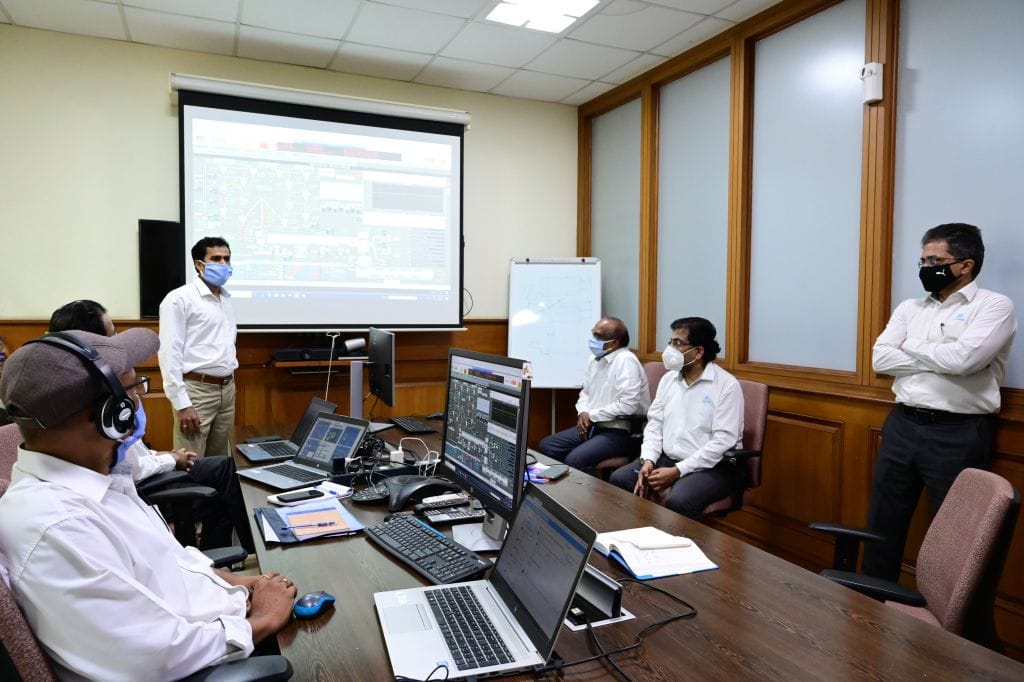Clinker production in Guatemala – performance testing over a distance of 9,000 kilometers
After building and successfully commissioning a 4,500 tpd clinker production line in Guatemala for its customer Cemento Progreso, thyssenkrupp was due to perform a “bonus test”. Usually the customer’s experts and thyssenkrupp’s specialists meet on site for this performance test but the coronavirus lockdown dictated otherwise and the commissioning engineers from Germany were unable to travel to Guatemala.
We quickly became confident it would work. After a short while everyone was hooked on the idea.
Thomas Kalus, Head of Construction & Commissioning
And so the idea was born to carry out the performance test, lasting more than nine days in three-shift operation, remotely – over a distance of more than 9,000 kilometers and eight hours’ time difference. A virtual control center was set up in Neubeckum, where thyssenkrupp’s commissioning engineers had the same picture in front of them as the customer’s operating personnel in Guatemala. Via a dedicated line the content of the polcid screens for controlling the kiln plant was transmitted in real time from the control center in Guatemala. A second DSL line was used for constant communication with the customer’s operating personnel. Images and sound, the signal of a further camera for the burner flame and tables and protocols were transmitted via TEAMS. Naturally, the coronavirus safety and hygiene rules (face coverings, distancing, disinfection, etc.) were strictly observed throughout the entire test.
In nine days of around-the-clock test operation over 40,000 tons of clinker were produced. The kiln’s performance of almost 108% clearly exceeded the target of 105% – an achievement of which everyone involved can be rightly proud.
Remote hot commissioning in Kenya
Word of the successful remote test quickly spread to other project teams and their customers. thyssenkrupp’s Indian and German commissioning experts also faced the problem during the coronavirus pandemic of being unable to continue their work normally on an important project in Kenya. Sixty kilometers from Mombasa, Kenya’s second largest city, the hot commissioning of a clinker production line including a raw mill and a cement mill was actually scheduled for the end of March 2020. Here too, the presence of thyssenkrupp’s experts was not possible. Together with the customer, the decision was made to carry out commissioning remotely.
It’s a great example of WE working remotely but closely with Clients and between the hubs. A path breaker to face the new normal.
V.N. Balasubramanian, Director Cement , thyssenkrupp Industries India
In virtual control rooms in Neubeckum, Germany, and Pune, India, the control panel of the plant in Kenya was projected onto huge screens. Another connection enabled live streaming and control via two consoles. The distances of 4,500 kilometers (Mombasa-Pune) and 6,900 kilometers (Mombasa-Neubeckum) were bridged without major problems.
Only 28 days elapsed between the decision to commission the plant remotely and production of the first clinker – ending a four-month coronavirus-related dry spell for the customer. The planned annual production of 1.65 million tons of cement in Kenya has come a big step closer.
